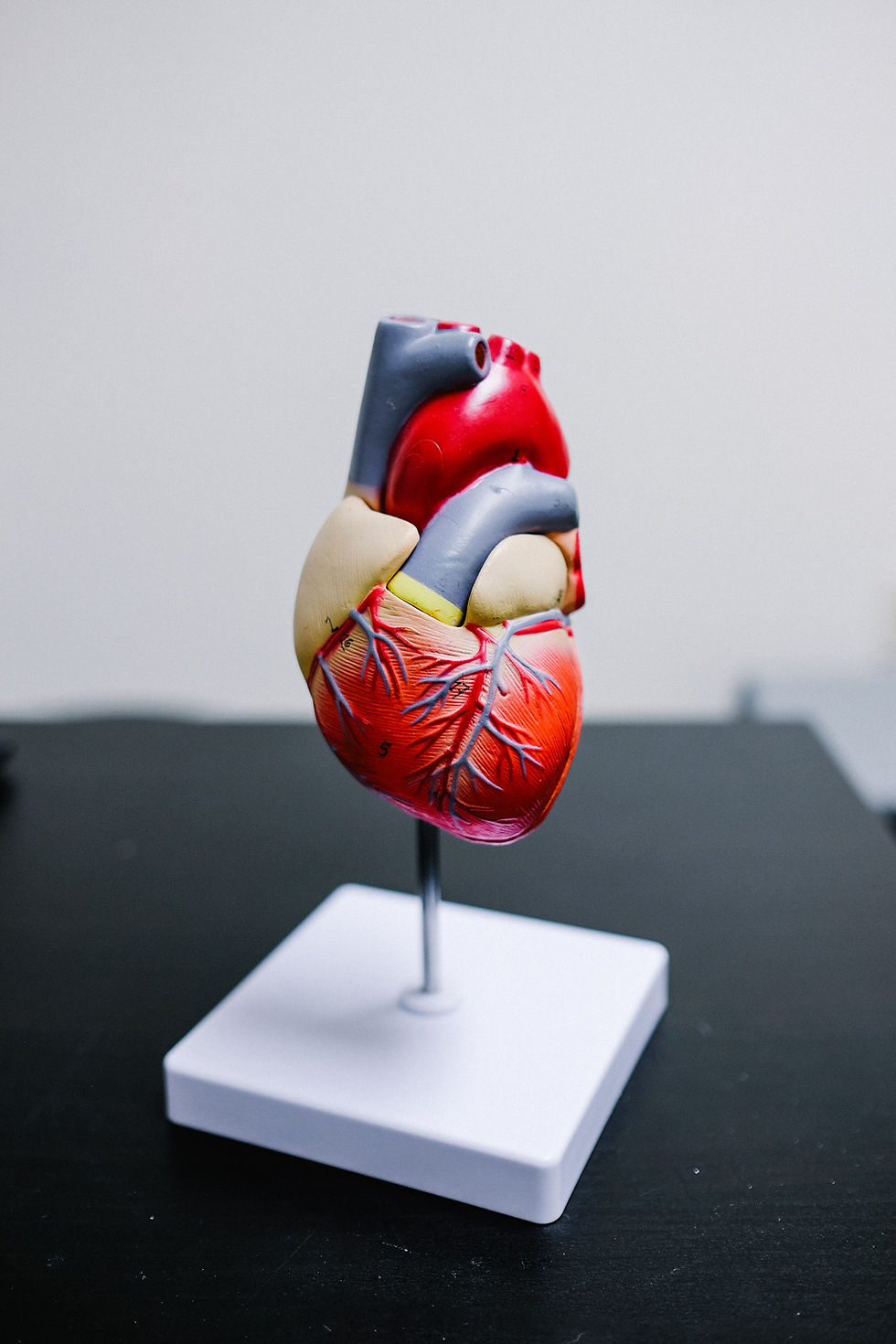Do these 10 things now to improve your health later
- Lainey Greer

- Feb 21, 2022
- 4 min read

Sleep
Studies show adults need seven to nine hours of sleep. A regular lack of sleep can cause concentration problems, weight gain, high blood pressure, mood and memory issues, weak immune system, and increase risk of heart disease, diabetes, and car accidents. To sleep better, be consistent in when you go to bed and when you wake up. Develop a routine 30 minutes before bed to help you wind down. Read, take a bath, drink a bedtime tea, or listen to music. Also, avoid light from electronic devices at least 30 minutes before bed, as the blue light stimulates your brain and increases your heart rate.
Do some deep breathing
I’ll be honest - this one is new for me. I never gave deep breathing much thought until I learned the physiology behind it. The mind/body connection that God made is amazing, and deep breathing enhances it. Your vagus nerve, which is largely responsible for operating your parasympathetic nervous system, allows communication between the gut and brain. This system enables your body to relax because the vagus nerve works to decrease your heart rate. It also plays a key role in digestion. To work on breathing, take deep breaths through your nose and out your mouth. You can also try 4/7/8 breaths where you inhale through your nose for 4 seconds, hold your breath for 7 seconds, then slowly exhale for 8 seconds.
Stretch
Muscles tighten and become less flexible with inactivity, age, old injuries we didn’t get properly treated, insufficient water intake, and stress. Overtime, tight muscles can lead to chronic pain. So, stretch now in order to guard against unnecessary pain later. Here is a link to some basic, total body stretches.
Eat fermented foods
Whether from stress or poor nutrition, many people have unhealthy guts. An unhealthy gut can exacerbate anxiety and depression issues because of that gut/brain connection I mentioned before. Incorporating fermented foods 4-5x a week will boost the good gut bacteria negatively impacted by long-term stress, antibiotic use, and low fiber/high saturated fat foods. These good bacteria help your body break down sugars, aid digestion, and protect against colon cancer and other GI issues. Fermented foods include greek yogurt, sauerkraut, kimchi, kefir, tempeh, tofu, miso, apple cider vinegar, and kombucha. Other foods that can improve gut health are leeks, onions, garlic, beans, raspberries, and asparagus.
Add some fiber
Men need 35 grams, and women need 25 grams of fiber every day. Insufficient fiber intake increases the chances of colon cancer along with diabetes and heart disease. Before going to fiber supplements, try to get sufficient intake from food – like whole grains, beans, brown rice, quinoa, farro, dark colored vegetables, berries, oatmeal, and the peeling of apples and potatoes.
Train your core
Core strength is essential to everything you do throughout the day. Weak back or oblique muscles may lead to injury, even when doing normal movements like reaching for something up high or picking something up off the ground. Here are some basic core moves to try no matter your current fitness level.
Cut out processed sugar
Sugar is sneaky. It’s in just about everything we consume. The average person needs no more than 25-30 grams of sugar a day. Ideally, we want naturally occurring sugars like in dairy, fruit, sweet potatoes, and whole grains. With excess sugar comes excess calories, leading to weight gain and eventually type II diabetes. It’s possible to cut out many sugars simply by changing what you drink. Avoid processed, high sugar foods like candy, donuts, cookies, ice cream, pastries, etc. There is nothing wrong with splurging every now and then. But when you do, try to eat things with real ingredients that are actually worth the calories - not processed items that usually don’t taste as good anyway.
Get some rest
Like most people, you’re probably overworked, stressed, and sleep deprived. While you may not recognize it, the daily grind will impact your health. Some physical signs of stress are tension headaches, an uneasy stomach, rapid heart rate, or clenching your teeth while sleeping. Because God created us as embodied beings, our mind impacts our body and vice versa. When facing mental stress, the body reacts. That’s why regular periods of rest are necessary. Not only are they restorative, but they also remind us we’re finite beings dependent on our Creator, So, we take time to rest - resting from work and resting in the Lord.
Eat good fats
Improve your long-term heart health by eating less bad fats and adding more good fats. Overtime, trans fats and saturated fats clog your arteries, which restricts blood flow and can eventually lead to a heart attack or stroke. Trans fats should be avoided all together, and we really shouldn’t eat more than 10-15g of saturated fat a day. Eating too much of this fat increases bad cholesterol and puts you at greater risk for certain cancers. Our primary fat intake should come from mono/polyunsaturated fat sources found in nuts, nut butters, fish, avocado, seeds like chia and flax, also good oils like olive, avocado, and flaxseed.
Walk 30 minutes everyday
The American Heart Association recommends getting 10,000 steps each day, which equates to 30 minutes of walking. There are numerous benefits of walking 30 minutes everyday. It lowers the risk of heart disease, cancer, diabetes, obesity, and even high blood pressure. If you walk outside, you’ll boost your vitamin D intake and strengthen your immune system. Walking can help decrease anxiety and stress, which enhances your mood and mental clarity. It also increases energy levels by getting your blood pumping, helps maintain your current weight, may improve your quality of sleep along with your balance and coordination. All of these benefits serve to improve your overall quality of life.




Comments